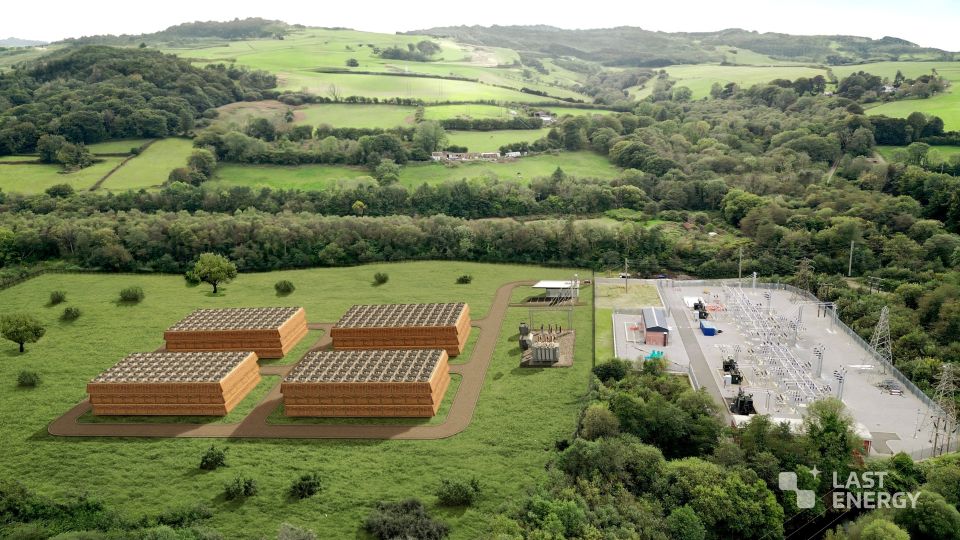Last Energy, Texas, Utah allege NRC overstepping in SMR regulation
Advanced nuclear reactor company Last Energy joined with two Republican state attorneys general in a lawsuit against the Nuclear Regulatory Commission, arguing that some microreactors should not require the commission’s approval.
Utah and Texas are the states involved in the lawsuit, which was filed December 30 in federal court in Texas. The parties’ goal is to accelerate the pace of micro- and small modular reactor deployment in the United States by exempting some new technologies from the traditional licensing process.
According to a Last Energy spokesperson, “This case will determine the threshold at which a nuclear reactor is so safe that it is below concern for federal licensing. There’s no doubt that robust shielding can eliminate exposure to, and the hazards from, nuclear radiation. Congress and former NRC executive director Victor Stello Jr. have both argued for a de minimus standard, and our intent is for the courts to enforce that recommendation.”
An NRC spokesperson said the agency will respond through its filings with the district court.
Background: The nuclear power industry is experiencing a surge of support as Americans are using more energy through the electrification of the economy. The biggest customers in the playing field are large tech companies trying to build additional data centers and support artificial intelligence growth, both power-hungry endeavors.
Recent federal legislation like the ADVANCE Act won bipartisan approval in 2024 and aims to make sweeping changes in the approval process for new nuclear technology. Unlike Last Energy’s lawsuit, the new policy isn’t trying to cut the NRC out of the licensing process—it’s trying to streamline the commission’s workflow and make the review process more efficient.
But some say the NRC review should not be necessary in all cases, pointing to an example of microreactors too small to power evan an LED lightbulb that under current rules still require complicated and costly NRC licensing, the lawsuit states.
Last Energy’s microreactor is designed to produce 20 MW, which is about as large as a unit can be while still categorized as “micro.” The units can be scaled to meet customer demand, and Last Energy promises deployment in under 24 months. The company has issued news releases about deployment progress globally—with agreements for more than 80 units across Europe—but has yet been able to secure licensing to deploy units domestically.
The states argue: “SMRs are not being constructed or operated in Texas because of prohibitive NRC regulations. . . . The NRC’s unlawful and overburdensome regulations have effectively precluded Last Energy from placing SMRs in Texas and continue to stymie Last Energy’s efforts,” the lawsuit spells out.
Utah is involved “for many of the same reasons Texas is harmed,” according to the lawsuit, with the state seeing rapid population growth, increasing energy demand, and retiring baseload power sources. In October, Gov. Cox launched Operation Gigawatt, with the goal of doubling Utah’s power production over the next 10 years and specifically calling out nuclear as a source to help meet the state’s clean, reliable energy needs.
Looking to history: The lawsuit maintains that the NRC is wrongly interpreting its authority laid out by the Atomic Energy Act of 1954 (AEA).
“The statute, properly read, strikes a sensible balance: large and potentially risky nuclear facilities require NRC licenses, but facilities not ‘capable of making use of special nuclear material in such quantity as to be of significance to the common defense and security, or in such manner as to affect the health and safety of the public,’ do not need such license,” the lawsuit argues, adding that such projects would still be subject to NRC oversight, as well as state regulation, export controls, and restrictions on nuclear weapons production.
Patrick White, research director at the Nuclear Innovation Alliance, a Washington, D.C.–based think tank, said the lawsuit raises some interesting questions and draws attention to the push for faster licensing of new nuclear technology.
“They [Last Energy, Texas and Utah] are looking at a very specific reading of the Atomic Energy Act, and it really comes down to two criteria: what’s in the common defense and security, and what can affect health and safety of the public,” White said.
“Interestingly, this is actually almost the same conversation we had 70 years ago,” he added, explaining that when the AEA granted federal oversight to civilian nuclear projects in the 1950s, multiple states came forward asking for more local control on nuclear reactor licensing. After about five years of debate, it was determined that states lacked the technical competence to make final judgements on nuclear plant projects—and it would be too confusing to introduce 50 different regulatory frameworks.
“Hopefully we can look at this question with fresh eyes, with what we know about reactor technology, what we know about current reactor designs, and then apply best practices to really accelerate licensing and deployment,” White said.






